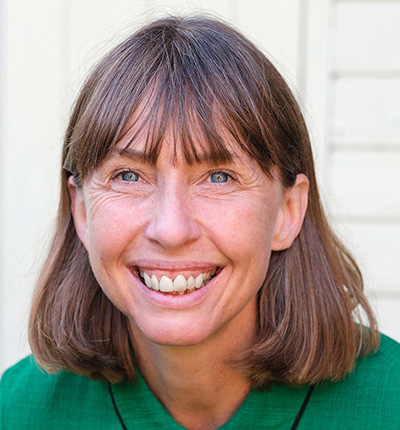Communicating the cost-of-living crisis: Katie Tait at Maggie’s
As budgets are being carefully considered and replanned in homes across the country, charities across all sectors are quickly redistributing their resources to help. One charity pivoting to keep up with the evolving needs of their community right now is Maggie’s – ‘everyone’s home of cancer care’, which provides free support and information in centres across the UK as well as online.
Maggie’s director of PR and public affairs Katie Tait shares how the cost-of-living crisis has impacted those fighting against cancer across the UK and how the charity has had to adjust to keep up with the increasing strains on the public:
‘People are more afraid of paying bills than their cancer diagnosis,’ shares Katie.
‘When you are given a cancer diagnosis, you should not have to be scared that you won’t be able to pay your bills’.
How has the cost-of-living crisis in the UK impacted Maggie’s work?
 We are hearing a huge range of devastating stories from our centre visitors across the UK of how the crisis is hitting them hard. People with cancer already face a financial burden because of reduced income from being off work or unable to apply for work, greater heating (or, this summer, cooling) needs because of treatment and being at home during the day as well as dietary requirements. Added to that – the travel costs of getting to their appointments.
We are hearing a huge range of devastating stories from our centre visitors across the UK of how the crisis is hitting them hard. People with cancer already face a financial burden because of reduced income from being off work or unable to apply for work, greater heating (or, this summer, cooling) needs because of treatment and being at home during the day as well as dietary requirements. Added to that – the travel costs of getting to their appointments.
Our benefits advisors are seeing unprecedented demand and they can always find all the different pots of money available but sometimes someone is already receiving all they can. That’s where Maggie’s is so good – because of our wrap-around care, we can support them through the stress and anxiety that living on a severely reduced budget brings. We are hearing of people stopping treatment early or delaying treatment because of travel costs and our cancer support specialists can help them with those decisions and how to know what to prioritise.
What are the unique challenges you’re facing right now?
Everyone is feeling the cost-of-living crisis but our unique challenge is in making sure people with cancer and their families are prioritised. During COVID, we drove home the message that people with cancer were being forgotten through delayed treatments and surgery and that got a lot of traction.
We are now seeing the same thing and our message is the same. People with cancer must be prioritised because of the life situation they are in. When you are given a cancer diagnosis, you should not be scared that you are not going to be able to pay your bills.
What have been some of your main successes recently?
Our recent press campaign and survey on how the cost-of-living crisis is impacting people with cancer got a lot of media attention. We invested in research and a survey with OnePoll which found a really strong and shocking headline figure of people being more afraid of paying bills than their cancer diagnosis. We landed our research in the same week as the Ofgem report which meant there was a lot of noise around cost-of-living and so our quotes and figures and case studies got picked up everywhere. We had a strong CEO statement and our centre visitors lined up for interviews.
It really bought home how critical the cost-of-living crisis was going to be for people living with cancer and with it our message that Maggie’s was here for everyone.
What advice would you offer to charities hoping to be heard by politicians/changemakers on this issue?
Find some champions. There are a lot of MPs, so you need to find the two or three who will become your advocates and advisers. Really research their interests and what they can do to help. Make it easy for them with clear messaging and calls to action. Follow and comment on what they do on social media and give them good content to post.
Our relationship with Tonia Antoniazzi, the chair of the APPG on Cancer, meant we had a Parliamentary reception in Westminster, set up an early day motion on the importance of our support for carers and could be introduced to other MPs. The same goes for Tracey Crouch, whose experience of cancer meant she really understood what Maggie’s is trying to achieve.
How would you advise others with approaching the media to gain coverage on these issues?
We made sure we had all the components ready to go at launch – we had case studies, spokespeople briefed, regional breakdowns of our data and ready-made social media content all prepared so that when we issued our release, we could respond to incoming requests straight away.
We also had a statement from our CEO that summarised the press release, including key data that we could send out reactively to any other cost-of-living stories as it’s such a hot topic.
How do you ensure that your approach is sensitive to those particularly vulnerable during this crisis?
We did a lot of work during our campaign planning to make sure we got our tone-of-voice right. This is something we’re really conscious of at Maggie’s and always strive to make sure the way we’re talking about issues is the way people living with cancer are talking about them too.
So, we held workshops with our storytellers and ambassadors as well as our front-line staff to find out what people are saying when they come to us for help and also what they really wouldn’t want to hear/read. We took out any jargon or anything that didn’t sound completely natural and then issued a tone-of-voice document across the organisation to make sure everyone was on the same page.
Which areas related to cost-of-living are underrepresented – what else should the media and politicians be reporting on?
There’s a lot of talk, rightly, about how the cost-of-living crisis is affecting those from lower income areas and older people, but not much about how it is impacting people living with cancer. We also know that people in lower income areas have a higher rate of some cancers, so it really is a double hit.
Are there particular journalists/sectors of the media you’d like to highlight as doing a good job on reporting on the cost-of-living crisis?
I think the media is doing a great job in covering how the cost-of-living crisis is impacting normal people. Broadcast media is the best way to hear real people’s stories, so for us having people who were happy to be interviewed on the TV and radio was important and hearing those stories straight from the people living them helps to bring home how hard the situation is.
The place that the real conversation is happening though is social media. Our Facebook posts, in particular, got a lot of attention and some really heart-breaking responses – all of which we can follow up with directly to make sure we are supporting them as much as we can.
How important is PR/comms for helping the public on this and making change to policy?
It’s imperative. Getting such a wide range of media outlets meant we were reaching nearly one million people with direct information about people with cancer and the cost-of-living. As we all know, an editorial carries far more punch than an advertorial – getting that Third Party Endorsement from media really does make an impact.
For more on campaigning for support throughout the cost-of-living crisis, read our interview with Love Energy Savings’ Rosie Macdonald on the company’s work with Lancashire-local brands including Robinsons to help families in the area.
Hear from Refuge, NSPCC and FareShare on how they’re navigated the crisis in our webinar ‘Communicating the cost-of-living crisis for charities’.
To connect with journalists reporting on your sector, find out more about the Vuelio Media Database and the ResponseSource Journalist Enquiry Service.





Leave a Comment